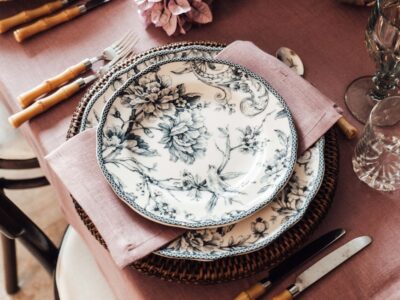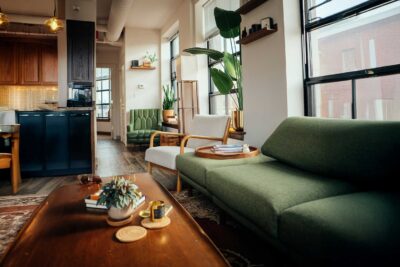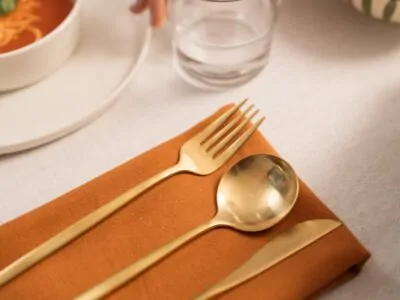Japandi Kitchen: Blending Functionality and Zen-like Simplicity
Japandi Design Essentials
When I set out to create my Japandi kitchen, I needed to understand what made this style tick, especially its design philosophy and color palette. With these essentials, I’ve been able to craft a peaceful and practical space.
Design Philosophy for a Japandi Kitchen
Japandi style meshes Japanese and Scandinavian vibes, highlighting simplicity and nature. It’s all about coziness and staying eco-friendly with a focus on neutral shades and top-notch materials. In my Japandi kitchen, this approach isn’t just about classy looks; it echoes my life and love for nature. Japandi’s charm lies in embracing flawed beauty and nurturing a bond with the world around me. Its serene atmosphere fits my kitchen like a glove, as pointed out by Architectural Digest.
Color Palette Selection
In my kitchen, picking colors that radiate peace is crucial. Whispering White is a star, making the space feel open and bright. It plays nice with different styles while keeping things simple and sophisticated, and it’s amazing what a little light can do! This palette ramps up the zen feeling. When I’m stuck for color ideas, I lean on Lily’s Green Life for inspiration.
| Color Name | Description |
|---|---|
| Whispering White | Opens up space with light and airiness |
| Soft Beige | Adds a cozy warmth without fuss |
| Zen Grey | Grounds the room with subtlety |
By sticking to these design and color rules, I’ve carved out my perfect Japandi kitchen—a place of balance, function, and calm. Don’t miss checking out ideas for Japandi furniture to spruce up the rest of my home, like my Japandi living room or Japandi bedroom.
Incorporating Textures
Creating a Japandi kitchen? Well, in my experience, the key to getting it right is using a mix of textures to add warmth and a splash of intrigue to the space.
Mixing Textures
Imagine the difference a few nifty textures can make in a minimalist kitchen. I often find linen wallpaper paired with soft wool fabrics and snug rugs does the trick. This combo doesn’t just look good—it feels inviting and gives off an air of elegance without trying too hard. Playing around with different shades also helps the overall feel to stay chill and calming.
| Texture Type | Suggested Use |
|---|---|
| Linen | Wallpaper, curtains, tablecloths |
| Wool | Rugs, cushion covers |
| Cotton | Bedding, extra soft furnishings |
Textile Choices
Picking the right textiles is my go-to move for adding depth to my Japandi setup without straying from its minimalist vibe. Think drapes, bedding, cushions, and area rugs all made from great materials like linen, wool, and cotton. These fabric choices not only ramp up comfort but keep the Japandi look consistent and smooth.
I am all about linen. It’s so adaptable, perfect for curtains, pillows, and tablecloths. It sprinkles a bit of elegance all around my place. On the eco-friendly side, rattan’s got my attention lately. It’s light and tough, just right for furniture that won’t compromise on style.
And let’s not sleep on natural wood! Light oak or dark mahogany cabinets add that warm, textured feel, perfect for the Japandi style, and they keep things classy for years.
When these textures and textiles come together, my kitchen mirrors the Japandi philosophy—functional, calm, and oh-so-stylish. If you’re curious about furniture, I’ve shared more thoughts on Japandi furniture.
Incorporating Natural Materials in Japandi Kitchen
A Japandi kitchen thrives on natural materials like wood and stone. Through my quest to rustle up a kitchen with Japandi vibes, I’ve learned that natural materials are essential for that soothing yet practical look. Wood and stone stand out as top picks, each lending their own flavor to the space.
Emphasis on Wood
Wood’s like the MVP in Japandi design. It’s eco-friendly, easy-going on the eyes, and makes your space breathe. Plus, wood’s texture is a work of art, and you can’t beat its color versatility. Hardwoods like oak and mahogany lay down some serious warmth vibes, while softwoods like pine keep things bright and breezy.
| Wood Type | Characteristics | Common Uses |
|---|---|---|
| Oak | Durable, strong | Cabinets, countertops |
| Beech | Light, smooth | Dining tables, chairs |
| Mahogany | Rich, warm tones | Shelving, accents |
| Pine | Lightweight, airy | Open shelving, trims |
| Redwood | Resilient, attractive | Outdoor spaces, furniture |
Having wood not only knocks home those chill, natural elements but also adds a storybook feel with its one-of-a-kind quirks and patterns.
Utilizing Stone
Stone’s like that reliable friend who’s always got your back. Tough, timeless, and full of charm, stone fits right into Japandi style. With textures running from sleek to rugged and colors that go from subtle grays to shining whites, it’s the whole package.
| Stone Type | Characteristics | Common Uses |
|---|---|---|
| Granite | Strong, scratch-resistant | Countertops |
| Marble | Elegant, cool | Backsplashes, tabletops |
| Onyx | Translucent, unique pattern | Decorative features |
| Sandstone | Textured, earthy | Flooring, wall accents |
| Limestone | Soft, warm tones | Countertops, flooring |
Bringing stone into your kitchen for countertops or neat design pieces not only gives you a solid surface but also a dash of sophistication that’s oh-so-Japandi.
Letting these natural materials wander into your space ties everything back to the earth and ups the chill factor that’s a signature of Japandi cool. Curious about Japandi-inspired decor? Check out our takes on some fab Japandi furniture or get cozy with ideas for the perfect Japandi living room.
Furniture Selection
Choosing the perfect furniture is all about giving your Japandi kitchen that extra special touch. I have a real knack for spotting the natural stuff like wood and stone that make the space feel both comfy and classy. It’s like balancing a fine line of zen and sophistication.
Natural Material Furniture
Japandi vibes totally hit the nail on the head with furniture made from nature’s finest—think wood, stone, and rattan. Not only does this keep things in tune with the outdoors, but it also warms up the whole kitchen. I’m constantly on the hunt for that perfect solid oak dining table or those simple wooden stools that give the room a peaceful, laid-back feel.
Check out these cool natural furniture picks that scream Japandi:
| Furniture Type | Material | Why It’s Awesome |
|---|---|---|
| Dining Table | Solid Oak | Strong, the grain’s a beauty, holds a story |
| Bar Stools | Rattan | Light as a feather, easy-going vibe, comfy perch for morning coffee |
| Cabinets | Wood (Maple) | Clean lines, gets the job done in style |
| Open Shelving | Bamboo | Earth-friendly and has a breezy look |
| Serving Cart | Reclaimed Wood | Giving old wood a new gig—a bit hippy, a bit cool |
Looking to jazz up your space? Peek at more japandi furniture.
Functional Layout
Furniture layout’s a bit of a pet project for me in my Japandi kitchen. Function over form, every time. I like to keep things flowing so cooking and hosting don’t feel like boot camp drills.
Here’s how I like to mix things up in my Japandi kitchen:
- Zoned Areas: Grouping stuff by what it does keeps cooking, eating, and getting ready all in their own neat corners.
- Clear Pathways: I stick to pathways at least 36 inches wide; you don’t want traffic jams while boiling pasta.
- Open Spaces: Less is more; avoiding clutter lets your mind breathe, emphasizing furnishings that pull double duty.
Picking furniture that looks sharp and works hard makes the kitchen a breeze to cook in. Imagine a japandi dining table or a handy japandi coffee table that keeps everything practical and pleasing.
By keeping it real with natural materials and practical layouts, I create a space that’s easy on the eyes and a joy to spend time in—welcoming that calm, Japandi energy into the heart of the home.
Japandi Kitchen Cabinets
Alright, let’s chat about nailing the right cabinets to whip up that calm and effective Japandi kitchen. White shaker cabinets and gray-toned cabinets are the MVPs in capturing that Japandi vibe.
White Shaker Cabinets
Man, I just love white shaker cabinets. They’re like the little black dress of kitchens—always in vogue. More than half of folks pick these babies for the way they keep things looking fresh, bright, and kinda roomy. They’re a blank slate just waiting for you to splash some personality with colors and styles. Perfect for kitchens big or small, they’ve got you covered (Counter Culture).
So, what makes white shaker cabinets such a big deal to me? Check it out:
| Feature | Benefits |
|---|---|
| Timeless Design | Plays nice with just about any decor |
| Brightness | Makes the space glow |
| Versatility | Switch up colors whenever you feel like it |
| Clean Aesthetic | Keeps that minimalist spirit alive |
White shaker cabinets just vibe really well with the Japandi groove, especially when teamed up with nature vibes and soft textures.
Gray Tones in Cabinets
Now, if I wanna dial up the depth and sophistication in my kitchen, I’m all about those gray cabinets. They swing from light and breezy to full-on dramatic, serving up a stylish neutral base that fits right in with a bunch of design styles, like contemporary and industrial (Counter Culture).
Here’s the lowdown on gray tones:
| Shade Type | Description |
|---|---|
| Light Gray | Keeps things airy and open |
| Medium Gray | Straddles the light-dark line |
| Dark Gray | Packs a punch with drama and flair |
In my pad, I’ve found gray cabinets do a bang-up job of keeping a Japandi kitchen quietly elegant while still being a place you’d want to kick back in. Toss in some wooden bits, and you’ve got a sweet mix that levels up the kitchen’s overall feel.
Whether I’m feeling the crisp lines of white shaker cabinets or the chill sophistication of gray tones, my kitchen’s gonna mirror my minimalist taste perfectly. If you’re curious about more stuff in this style, pop over to japandi furniture for a look-see.
Serene Color Choices
Designing a Japandi kitchen? Well, picking the right colors is like finding the perfect zen garden for your home. My top picks that shout peace and simplicity are Whispering White and Zen Grey.
Whispering White
Whispering White is my go-to for creating calm vibes in a Japandi kitchen. It’s like waving a magic wand to make small kitchens look bigger and brighter. It gets along with lots of styles, giving my kitchen that clean, simple, yet classy look. By letting light bounce around, this color adds a breezy feel.
| Color | Effect |
|---|---|
| Whispering White | Opens up space, adds brightness |
Zen Grey
Now, meet Zen Grey—my secret weapon for a touch of quiet class. Reminiscent of Kyoto’s peaceful pebble gardens, this shade brings a calm, understated vibe. Perfect for personal expressions, Zen Grey quietly sets the scene for any style choices I might explore. It’s the go-to for accents or cabinets, blending purpose with a chill mood.
| Color | Effect |
|---|---|
| Zen Grey | Brings tranquility and calmness |
These colors, Whispering White and Zen Grey, are my secret sauce for creating peace in my Japandi-inspired kitchen. They play perfectly with japandi furniture to make my space welcoming and restful.
Achieving Tranquility
Building a peaceful escape in my japandi kitchen isn’t rocket science. It’s all about two simple things: making the space feel right and adding a sprinkle of nature. Together, they’ve turned my kitchen into a place where I can actually kick back and relax.
Space Harmony
For me, the key to keeping my kitchen chill is an open layout. Imagine just breezing through the room without tripping over stuff. That’s the serenity of japandi design—clean, minimal, and fuss-free. It’s like saying, “Hey, simple is better.” I pick furniture that’s both useful and easy on the eyes, making the kitchen feel like it’s part of a master plan.
Here’s how I keep the peace in my kitchen space:
| Element | Description |
|---|---|
| Layout Style | Open-plan kitchen |
| Furniture Choice | Multi-functional pieces |
| Color Theme | Soft, neutral colors |
Natural light is my magic sauce. Let it flood in, and suddenly the place feels bigger and super inviting. Add a few hidden storage spots, and you keep things looking tidy without losing the utility.
Nature Integration
Nature in your kitchen? Yep, that’s a thing, and it works wonders. The japandi style digs natural vibes, so I bring in some wood, stone, and a dash of greenery. You know, sturdy stuff like wood and cool stone connect you to Mother Earth, keeping things warm and welcoming (Goodrich Global).
Here’s how I keep nature around:
- Plants: Toss in some herbs or maybe a fun succulent. They’re not just nice to look at; they also bring in a breath of fresh air and chill vibes.
- Natural Textiles: Go eco-friendly with your kitchen towels or mats. It makes the space warm and cozy, staying true to concepts like Wabi-Sabi and Hygge (Japandi Materials).
Mixing in a bit of nature doesn’t just spruce up the kitchen; it makes daily life feel a little more serene. Focusing on what’s natural and picking designs that reflect that, my kitchen turns into a peaceful retreat where style meets the everyday grind gracefully (Nelson Cabinetry).
By marrying space harmony with a nature-loving vibe, my japandi kitchen becomes this chill zone—a place where function and zen unite, making it perfect to unwind and soak up life’s little joys.
Japandi Style Elements
Minimalism in Design
Ah, Japandi style—gotta love it. It’s like the cool kid on the block, blending the best of Japanese and Scandinavian vibes. We’re talkin’ simplicity, chill vibes, and earthy materials. Think smooth woods, soft tones, and a big ol’ nod to nature. It’s all about finding beauty in the imperfect and making your space both inviting and practical. It’s kind of like how I want my life to be—minimal drama, plenty of plants, and a comfy couch.
| Element | What it Means |
|---|---|
| Simplicity | Minimal mess and sleek lines. |
| Natural Elements | Plants and materials that make you feel grounded. |
| Neutral Colors | Soft hues like beige, grey, and white seem to be the star players. |
| Comfort | Cozy spots that make you wanna kick back with a cup of tea. |
Sustainable Choices
Let’s talk about going green—Japandi style makes sustainability look like a breeze. It’s comforting to know that what fills my space isn’t just pleasing to the eye but it’s also got Mother Nature’s nod of approval. Sturdy wood, solid stone—you really can’t beat that for making a room feel like it’s whispering a gentle “ahh” when you walk in. The Japandi approach doesn’t stop there. We’ve got metals that age like fine wine, cute little ceramic bits, and fabrics that feel as good as they look. It’s like hygge and Wabi-Sabi had a party, and I’m all for it.
| Material | Why It’s Awesome |
|---|---|
| Wood | Gives off that warm and classic feel. |
| Nature’s Stone | Textures that tell a story and stand the test of time. |
| Eco-friendly Fabrics | Good for the planet, good for the soul. |
| Ceramics | Adds a nice crafty touch. |
Sticking to these minimalist and green vibes, I’ve made my home a little slice of style heaven that just speaks to what I’m all about. If you’re ready to jump into the Japandi world, check out our takes on japandi furniture, and see how we’re styling up spots like the japandi living room or japandi bedroom. You might just find a new look or idea that hits home—in more ways than one.
KŌŌI / KŌŌI Magazine / Living Room Decor Ideas / Japandi Decor Ideas / Japandi Kitchen: Blending Functionality and Zen-like Simplicity

Laura Jones
Still hungry? Here’s more

My Favorite Luxury Dinnerware Trends for a Stylish Table
Discover the ultimate luxury dinnerware trends to elevate your table setting game with style and sophistication!

Best Throws for a Sofa: Cozy and Stylish Recommendations
Discover the best throws for a sofa—cozy, stylish picks that elevate your living space effortlessly!

How pop culture interior design shapes the way we style our homes
Experience how pop culture interior design transforms our homes, blending style and personality effortlessly!

10 Common Mistakes You Must Avoid When Relocating
Moving can be exciting, but let’s be honest—it’s also a recipe for stress if things go wrong. Boxes pile up, furniture doesn’t fit through the door, and suddenly the “big day” doesn’t feel so fun anymore. That’s why avoiding common mistakes is key.

My Journey to Finding the Perfect Modern Cutlery Designs
Embark on my quest for chic table settings! Discover the ultimate modern cutlery designs for your dining delight.

The Timeless Appeal of Mushroom Inspired Home Decor
The world of interior design is always evolving, but there’s one enduring trend that has captivated decorators and homeowners alike for generations – the enchanting allure of mushroom-shaped decor.





 Home Accessories
Home Accessories Furniture
Furniture
5 thoughts on “Japandi Kitchen: Blending Functionality and Zen-like Simplicity”